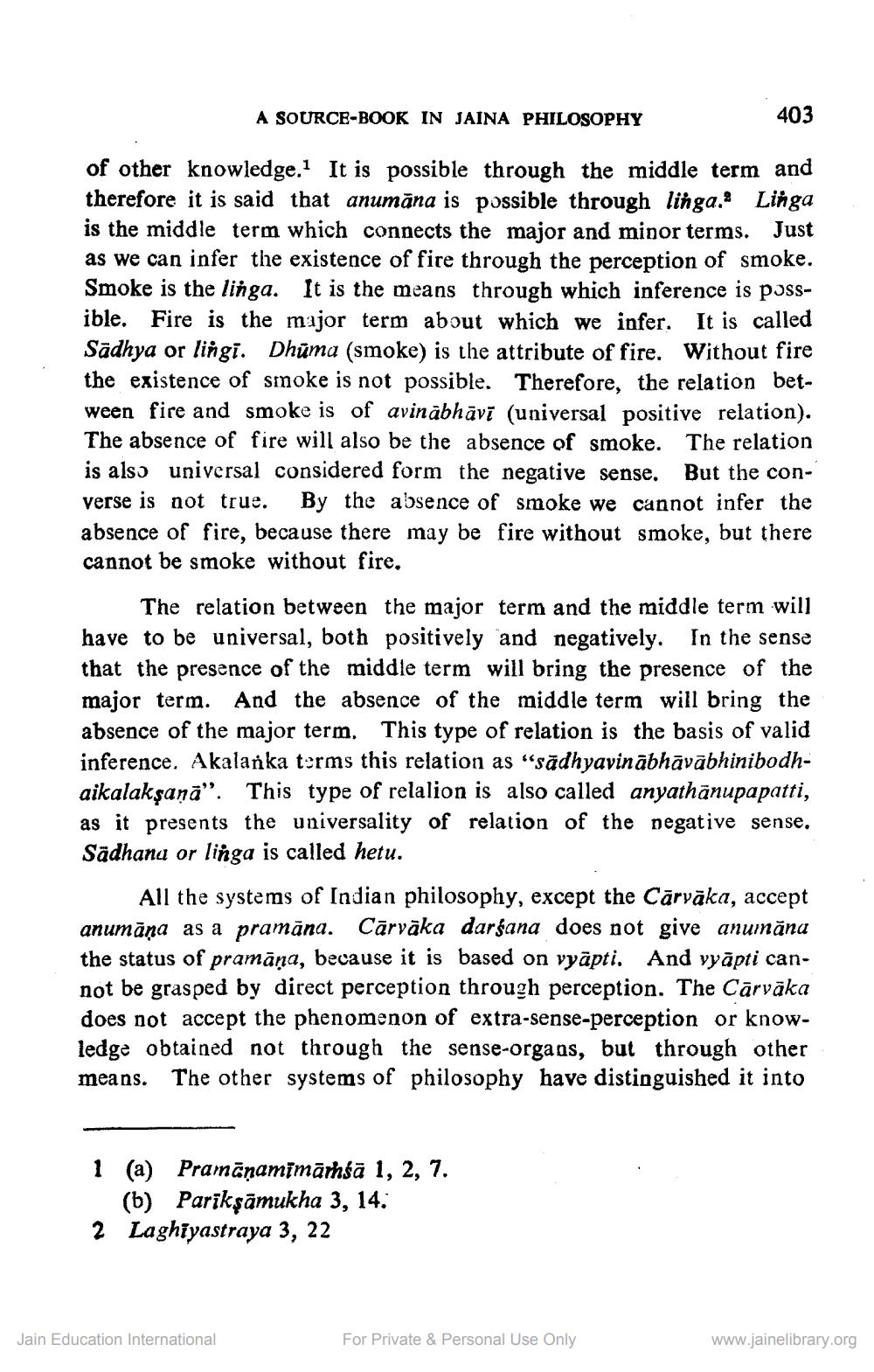________________
A SOURCE-BOOK IN JAINA PHILOSOPHY
403
of other knowledge. It is possible through the middle term and therefore it is said that anumāna is possible through linga.' Linga is the middle term which connects the major and minor terms. Just as we can infer the existence of fire through the perception of smoke. Smoke is the linga. It is the means through which inference is possible. Fire is the major term about which we infer. It is called Sadhya or lingi. Dhūma (smoke) is the attribute of fire. Without fire the existence of smoke is not possible. Therefore, the relation between fire and smoke is of avinābhāvī (universal positive relation). The absence of fire will also be the absence of smoke. The relation is also universal considered form the negative sense. But the converse is not true. By the absence of smoke we cannot infer the absence of fire, because there may be fire without smoke, but there cannot be smoke without fire.
The relation between the major term and the middle term will have to be universal, both positively and negatively. In the sense that the presence of the middle term will bring the presence of the major term. And the absence of the middle term will bring the absence of the major term. This type of relation is the basis of valid inference. Akalanka terms this relation as "sādhyavinābhāvābhinibodhaikalakşaņā”. This type of relalion is also called anyathānupapatti, as it presents the universality of relation of the negative sense. Sadhana or linga is called hetu.
All the systems of Indian philosophy, except the Cārvāka, accept anumāņa as a pramāna. Cārvāka darśana does not give anuināna the status of pramāņa, because it is based on vyāpti. And vyāpti cannot be grasped by direct perception through perception. The Cārvāka does not accept the phenomenon of extra-sense-perception or knowledge obtained not through the sense-organs, but through other means. The other systems of philosophy have distinguished it into
1 (a) Pramāņamimāršā 1, 2, 7.
(b) Parikşāmukha 3, 14. 2 Laghiyastraya 3, 22
Jain Education International
For Private & Personal Use Only
www.jainelibrary.org




